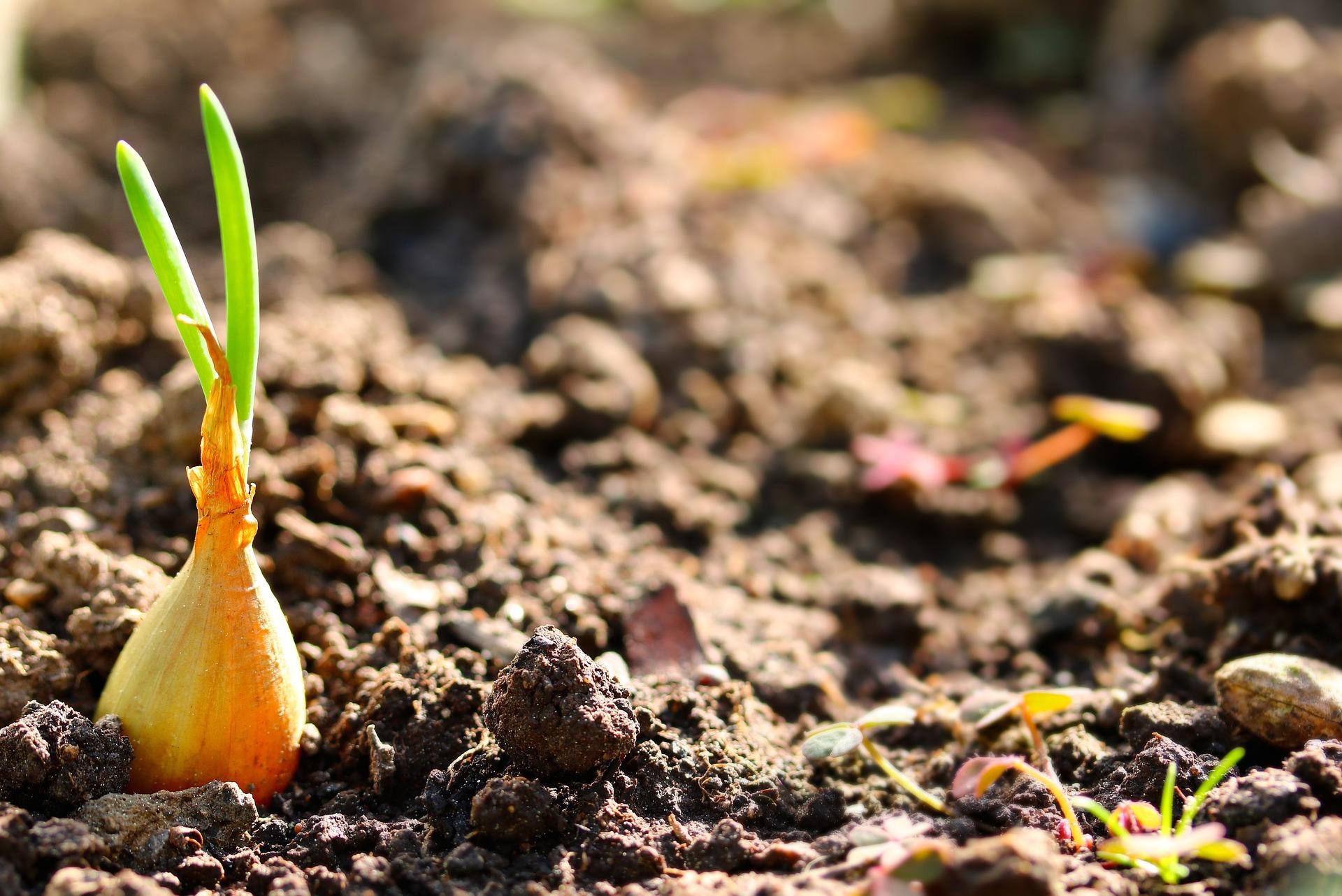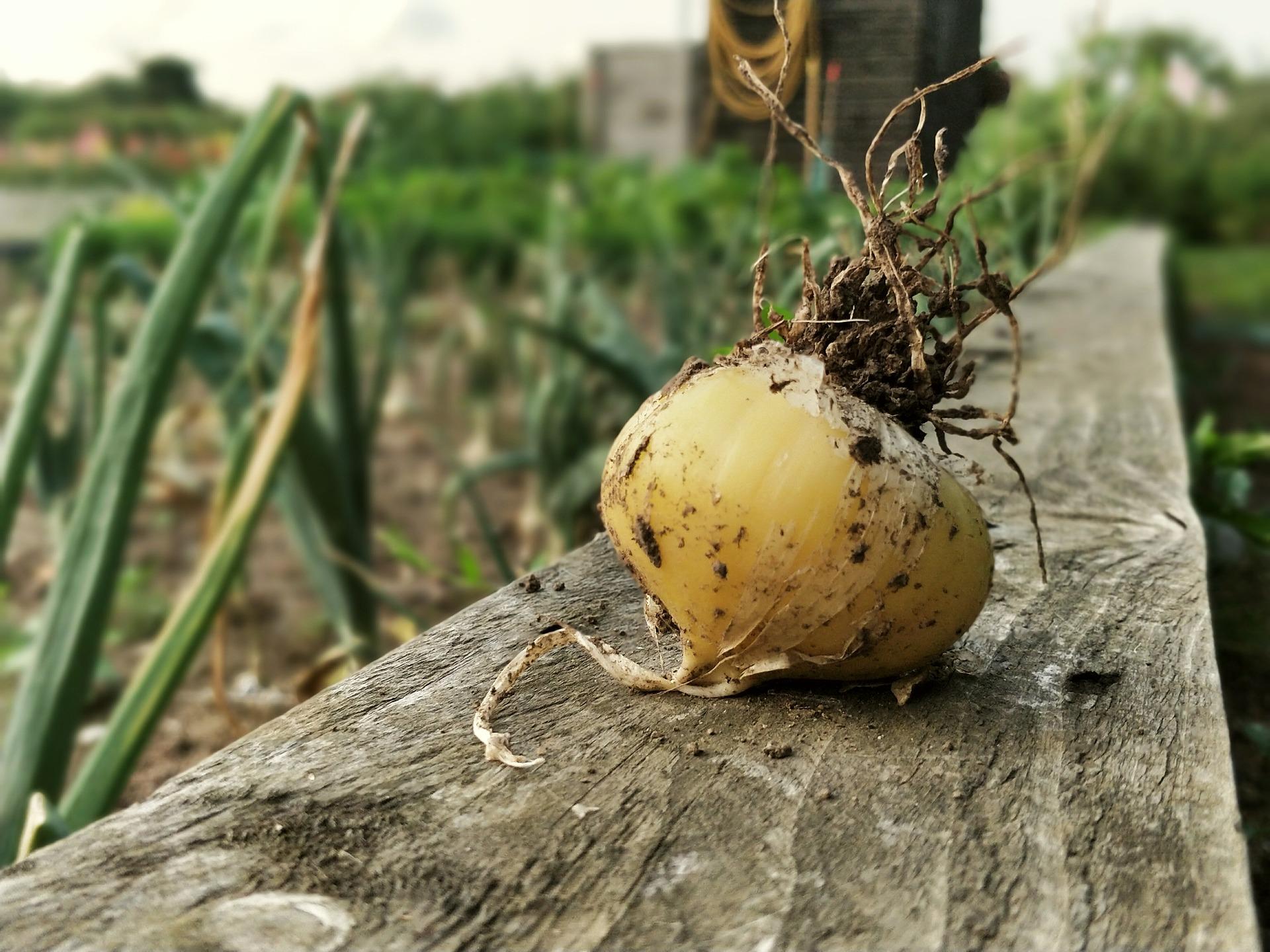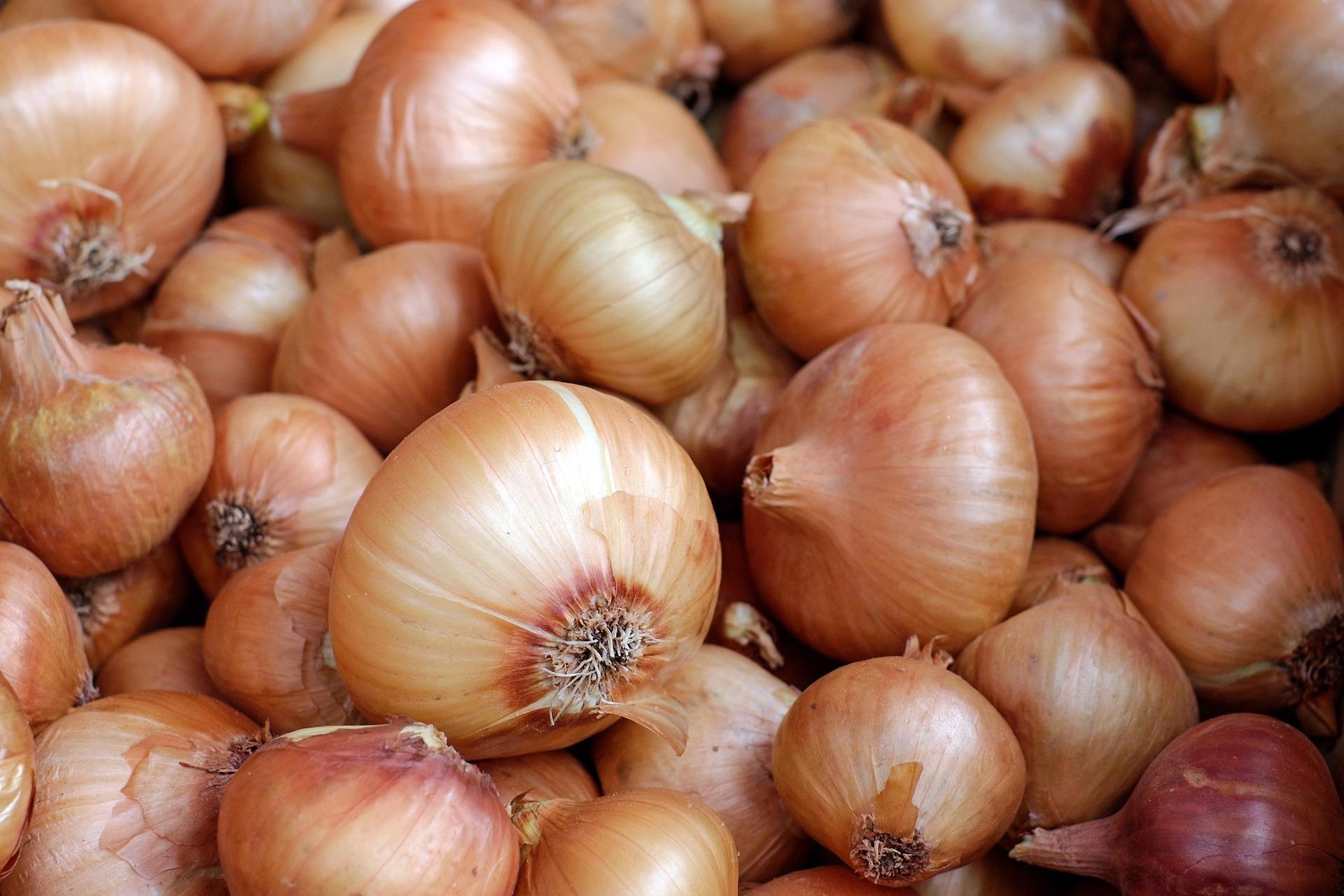

Onions are a pantry staple that many of us simply couldn’t live without. They’re part of the Allium family and come in many varieties, usually sown as mini bulbs known as 'sets'. You can sow onions from seeds, however, they are slower to grow and need more attention than seedlings. They are though, less likely to bolt (flower), so you should end up with bigger bulbs as a result. You’ll probably need to invest a little more time and care if you’ve been wondering how to grow onions from seed.
Whether you want to grow onion from seeds or plant onion bulbs, we’ve provided the information you need at Allotment Online. Learn more about growing onions, how to plant onions, and when to pick onions in our detailed guide.
Onion sets can be sown outdoors during autumn or early spring for a late summer to autumn crop. To sow onion seeds indoors, start them off in trays during winter to be hardened off and planted outside in spring. Thin them out if necessary.
To sow sets outside, plant approximately one inch deep and 8 inches apart in rows. Planting them close together will result in smaller individual onions.
Onions have shallow roots, so it really pays to pre-treat your soil beforehand with good compost or well-rotted manure. Potash also helps the onions as they will absorb less sulphur, which causes the onions to become so strong, pungent and eye-watering!
Onions require watering during dry spells and to be kept weed-free. Do not over-water, particularly from mid-summer for spring-planted bulbs, as this can mean that they will not store as well. Overhead watering can cause fungal diseases, too.
Sets planted in Autumn are ready to be harvested by early to mid-summer. Sets planted in Spring and seed-planted onions are ready around late summer to early Autumn.
You can start harvesting your onions when you observe the foliage yellowing and toppling, indicating the onion bulb has reached the maturity stage. It’s best to harvest quickly before the foliage dies down completely.
To harvest your onions, use a fork to gently lift the onion bulbs, ensuring they don’t get damaged or bruised. Even a small bruise or damage may lead the bulbs to rot when stored. If any onions are damaged during the harvesting process, we recommend using them straight away.
Growing onions is generally an uneventful process, as the bulbs grow well without any major issues. However, if the plants are grown in damp conditions or poorly stored, they may be affected by fungal diseases.
Weeds can swamp the onion plants if left in the ground to tower over them and take away the nutrients needed for the onions to grow healthily, resulting in a smaller bulb.
Remove any flowers at the top of the stems as soon as they appear. These will also take the plant's energy resulting in poor growth.
Also keep an eye out for problems such as leaf rust and onion rot, rotting can affect the neck, roots and/or the bulb.
Once your onion leaves start to die off and droop later in the season, you can gently pull them up to store, but they need to be dried out first. Wait until the skins go brown and crispy (the top stems too) and inspect individual ones for rot or fungi before storing. Brush off the first on the surface before storing. They should be stored in a dark, cool place in boxes or nets - something that allows the air to penetrate them.
A pantry staple, onions can be eaten raw in garden salads or cooked in a variety of dishes, like French onion soup, onion tart, pasta bakes, curries, and more.



Allotment Online is a happy, thriving community of growers. We’re always looking for more growers to join our community. Whether you’re just learning the basics or have years of experience under your belt, we’re here to offer guidance and advice.
Growing onions and other vegetables may seem challenging at first, but once you know the basics, you’ll approach the task with much more confidence. You’re welcome to provide your input, helpful tips and tricks, and supportive resources to other gardeners based on your own experience on the allotment.
Join us today by signing up here, and don’t forget to share your own tips, stories, and experiences on growing onions.